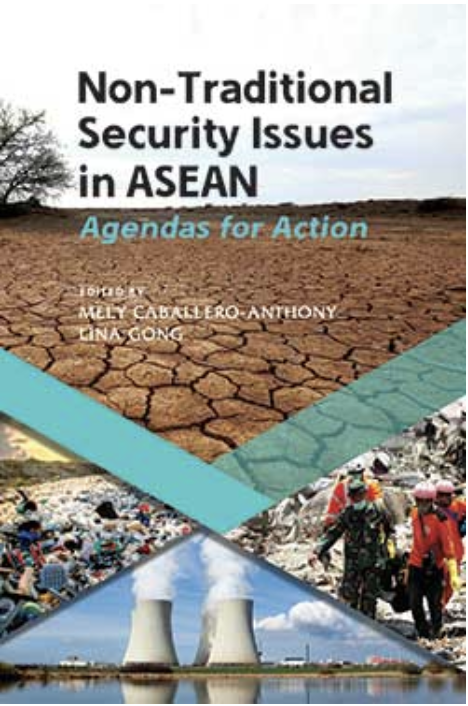05 March 2020
- RSIS
- Publication
- External Publications
- Non-Traditional Security Issues in ASEAN: Agendas for Action


Non-Traditional Security Issues in ASEAN examines the current state of governance of non-traditional security challenges confronting the ASEAN region. The book takes an issue-specific approach to investigating how ASEAN states and societies govern many of the pressing non-traditional security issues, such as climate change, food security, environmental protection, humanitarian assistance and disaster response, health security, nuclear security, and human trafficking and forced displacement.
With non-traditional security as an established concept in the policy and scholarly communities in ASEAN, this book moves beyond securitization and focuses on capacity-building, regional cooperation and institutions for dealing with non-traditional security challenges in the region. Through the development of a comprehensive analytical framework that examines the processes of governing non-traditional security problems, the editors put together chapters that identify some of the major gaps and challenges in managing many of the pressing security issues in Southeast Asia.
Non-Traditional Security Issues in ASEAN provides a systemic assessment of the state of governance of the most pressing challenges in the region. The authors analyse the ways in which particular issues are addressed at national and regional levels and by different stakeholders. In spite of the differences among various non-traditional security issues, the analysis of the chapters converge on three core themes for enhancing governance, which include engagement of multiple actors, effective enforcement of national and regional laws and regulations, and better coordination between different actors. As such, Non-Traditional Security Issues in ASEAN contributes to policy making by highlighting the key agendas that call for national action and promoting and deepening regional cooperation in governing non-traditional security.
In this video, Dr Mely Caballero-Anthony, Professor of International Relations and Head of the Centre for Non-Traditional Security Studies, RSIS, and Dr Lina Gong, Research ... (more)
Non-Traditional Security Issues in ASEAN examines the current state of governance of non-traditional security challenges confronting the ASEAN region. The book takes an issue-specific approach to investigating how ASEAN states and societies govern many of the pressing non-traditional security issues, such as climate change, food security, environmental protection, humanitarian assistance and disaster response, health security, nuclear security, and human trafficking and forced displacement.
With non-traditional security as an established concept in the policy and scholarly communities in ASEAN, this book moves beyond securitization and focuses on capacity-building, regional cooperation and institutions for dealing with non-traditional security challenges in the region. Through the development of a comprehensive analytical framework that examines the processes of governing non-traditional security problems, the editors put together chapters that identify some of the major gaps and challenges in managing many of the pressing security issues in Southeast Asia.
Non-Traditional Security Issues in ASEAN provides a systemic assessment of the state of governance of the most pressing challenges in the region. The authors analyse the ways in which particular issues are addressed at national and regional levels and by different stakeholders. In spite of the differences among various non-traditional security issues, the analysis of the chapters converge on three core themes for enhancing governance, which include engagement of multiple actors, effective enforcement of national and regional laws and regulations, and better coordination between different actors. As such, Non-Traditional Security Issues in ASEAN contributes to policy making by highlighting the key agendas that call for national action and promoting and deepening regional cooperation in governing non-traditional security.




